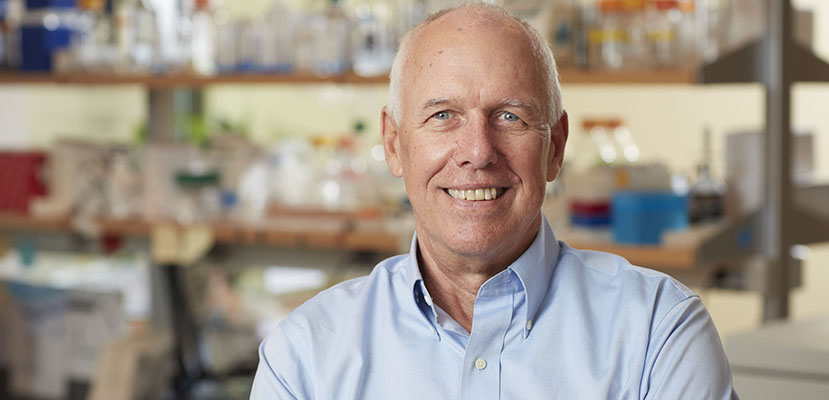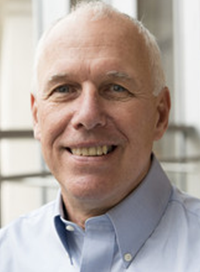Philanthropy News

PROFESSOR NATHANIEL HEINTZ, PH.D., APPOINTED DIRECTOR OF THE FISHER CENTER FOR ALZHEIMER’S RESEARCH AT THE ROCKEFELLER UNIVERSITY
NEW YORK, NY, June 13, 2022—The Fisher Center for Alzheimer’s Research Foundation and The Rockefeller University are pleased to announce that Nathaniel Heintz, Ph.D., has been appointed director of the university’s Fisher Center for Alzheimer’s Research. Dr. Heintz succeeds the late Paul Greengard, who had served as founding director of the center from 1995 until his death in 2019.
A distinguished neuroscientist, Dr. Heintz is the university’s James and Marilyn Simons Professor, head of the Laboratory of Molecular Biology, and an Investigator of the Howard Hughes Medical Institute. He is a member of the National Academy of Sciences.
“Nat Heintz’s discoveries, built upon powerful methods he has developed, have contributed significantly to our understanding of the brain’s development and function,” said Richard P. Lifton, President of The Rockefeller University. “He is a leader in basic research and an innovator in drug discovery for neuropsychiatric and neurodegenerative disorders. Nat is the ideal scientist to head the Fisher Center.”
Advancements introduced by the Heintz lab include transgenic mouse models that allow individualized visualization of the myriad different cell types in the mammalian brain; these mouse lines have been used in more than 2,000 publications. A subsequent methodology invented in the lab, called translating ribosome affinity purification (TRAP), enables genetic and molecular profiling of targeted cell types within their native tissue. TRAP has been widely used in academic labs and by biotech and pharma companies.
Thus far, most attempts to find treatments for Alzheimer’s disease have been aimed at a single feature: the accumulation of beta-amyloid protein in the brain. Experimental drugs that act on amyloid pathways have shown promise in lab studies but have failed in clinical trials. Dr. Heintz will pursue a different direction, focusing on two key areas of Alzheimer’s pathogenesis: the vulnerability of specific classes of brain cells to degeneration, and the role of aging in disease onset. Crucially, he will use new methods to analyze postmortem brain tissue from Alzheimer’s patients who had been clinically characterized within well-defined cognitive subgroups, as well as individuals with no clinical diagnosis of Alzheimer’s dementia.
“Our research is based on completely unbiased, hypothesis-free discovery of the precise molecular events associated with Alzheimer’s disease and aging,” Dr. Heintz said. “This strategy can guide us toward the development of interventions that minimize the impacts of aging on the brain, slow the rate of cellular dysfunction related to Alzheimer’s, and compensate for functional deficits that occur early in the disease.”
In making the announcement, Dr. Lifton thanked the board of the Fisher Center for Alzheimer’s Research Foundation for its extraordinary generosity. “Truly groundbreaking science depends on private funding,” he said. “The foundation’s continued support of the Fisher Center for Alzheimer’s Research will fuel a world-class program in neurodegenerative disease with far-reaching implications for treatment.” With his appointment, Dr. Heintz will move his research group to the Fisher Center laboratories on the ninth floor of the university’s John D. Rockefeller, Jr., and David Rockefeller Research Building.
“We are delighted that Nat Heintz has taken the helm of the Fisher Center for Alzheimer’s Research,” said Barry R. Sloane, chairman of the Fisher Center for Alzheimer’s Research Foundation and a Rockefeller University trustee. “He is a superb investigator who brings energy and imagination, as well as deep knowledge and experience, to meet one of the greatest challenges in biomedical science. We are proud of our long affiliation with Rockefeller, and confident that research by Nat and his team will have a transformative impact on the effort to conquer this devastating disease.”
The creation of the Fisher Center was inspired by conversations between the late Zachary Fisher, whose wife, Elizabeth, had suffered from Alzheimer’s disease, and the late David Rockefeller, who had experienced the illness of his sister-in-law, Blanchette Hooker Rockefeller. Their families having been touched by tragedy, the two legendary philanthropists pledged to join forces in a pioneering scientific initiative aimed at finding a cure. The Fisher Center for Alzheimer’s Research was founded in 1995 with Paul Greengard as director.
Alzheimer’s disease, characterized by progressive neurodegeneration leading to severe cognitive impairment, afflicts an estimated 6.2 million patients in the United States today. That number is expected to grow to nearly 14 million by 2060.
About the Fisher Center for Alzheimer’s Research Foundation
The Fisher Center for Alzheimer’s Research Foundation is an organization that provides significant philanthropic support for novel Alzheimer’s research. The Fisher Center lab at The Rockefeller University, now under the direction of Professor Nathaniel Heintz, is one of the largest and most modern scientific facilities in the world dedicated to solving the puzzle of Alzheimer’s disease. Dr. Heintz succeeded the late Paul Greengard, Nobel laureate and founding director of the Fisher Center lab.
Our mission is to understand the causes of Alzheimer’s disease, improve the care of people living with it, and find a cure. Our vision is working towards a future where Alzheimer’s is nothing but a memory.
